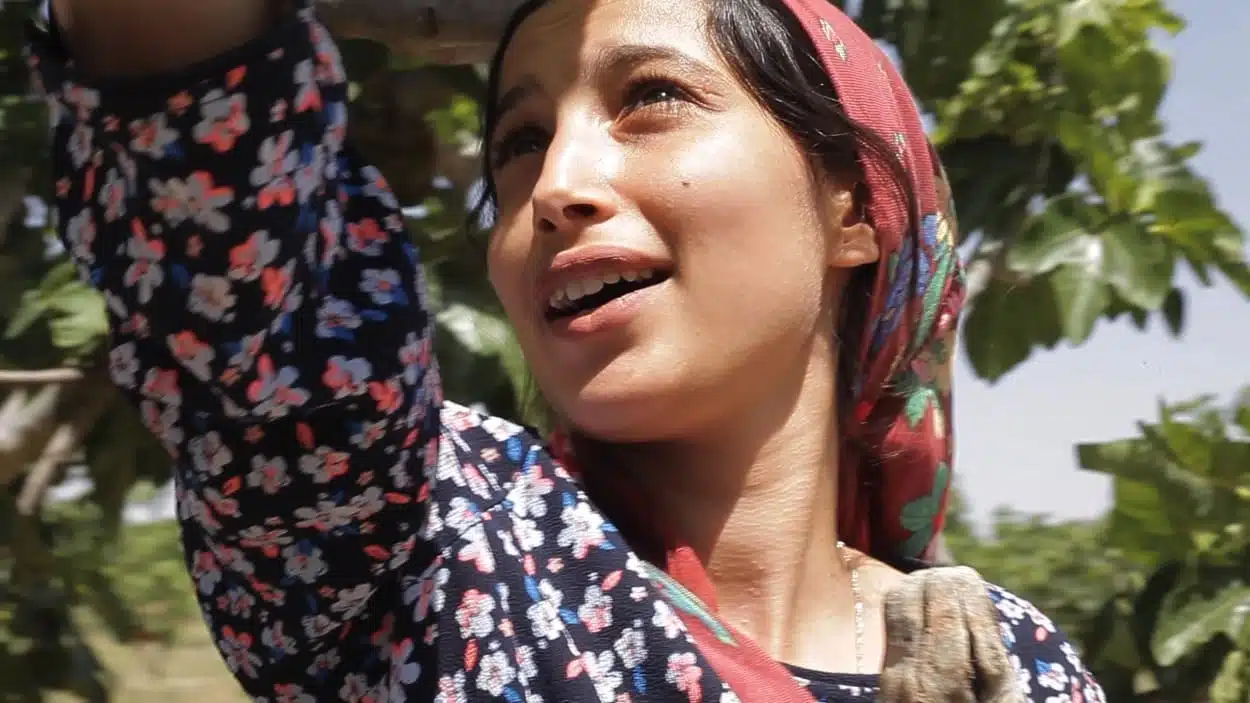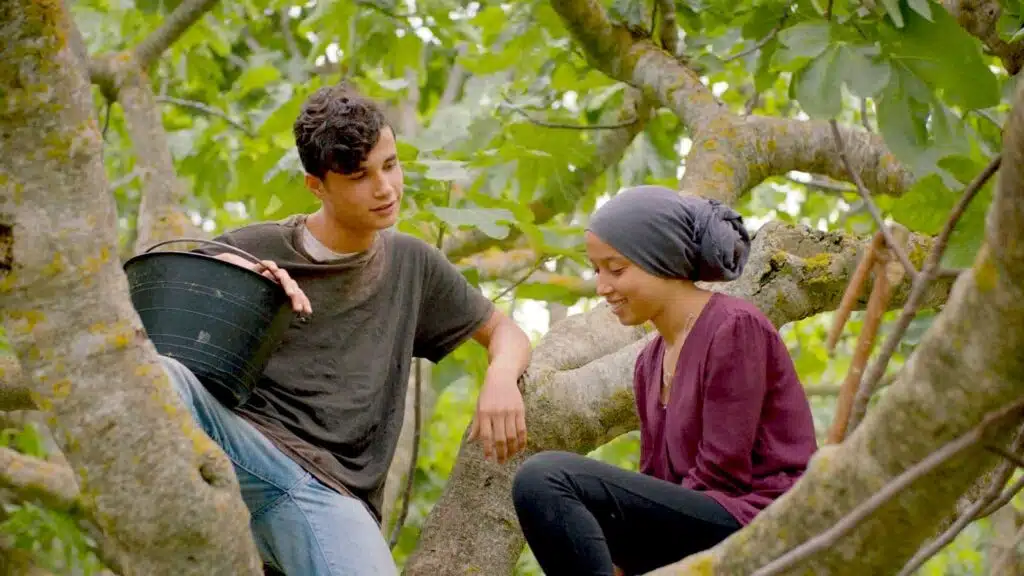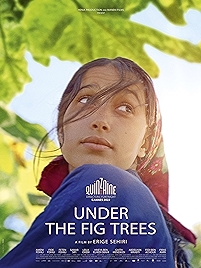Under the Fig Trees (Taht alshajra) isn’t a documentary but it’s made by Erige Sehiri almost as if it were. She’s been a documentary-maker up till now, and brings that different quality of storytelling to a quietly brilliant film full of drama.
In the realm of fiction stories are told, but in documentaries they emerge – broad generalisation I know – but that’s the way Sehiri does it here. Opening shot: dawn, a young woman somewhere in Tunisia making her way towards a road. Next shot: climbing onto the back of a truck with a bunch of other people, all of whom know each other. Everyone’s in the back, except Fidé (Fide Fdhili), who sits up front with the boss, Saber (Fedi Ben Achour). Because she likes him, the others tease.
One line of drama set up, the action shifts to the fig orchard where the truck was heading. Saber is convinced someone is stealing the figs at night – second line of drama. And off they go to work, these mostly young men and women, chatting and sometimes flirting as they pick, with Saber a harsh overseer keeping an eye on everyone. Don’t pick the green ones, don’t drop them on the ground, don’t break the branches – difficult when picking is done by using a hooked stick as a tool to pull the fruit down within reach.
And then Abdou (Abdelhak Mrabti) arrives out of nowhere. No one has seen him for five years. Melek (Feten Fdhili) and he were girlfriend and boyfriend back then and as soon as she sees him – now grown into a strapping and handsome young man – she goes a bit wobbly. What he’s doing back here? – third line of drama. Does he have feelings for her still, or is he, as early evidence suggests, tilting towards the feistier Fide? Fourth line of drama.
Sehiri isn’t done establishing little dramatic whirlpools, and introduces another one roughly every ten minutes – an engaged couple whose relationship seems a bit patchy, the arrival of Abdou’s angry uncle, a sexual approach on one of the girls that’s entirely unwelcome – all the while encouraging the sense that all this is just happening to its own rhythm and not a storyteller’s.
The youngsters pick, the older people sort the figs into trays, and at lunchtime the youngsters sit in one group and chat in a lively fashion, about love and so on. A little distance away the older women sit separately in companionable silence but with a watchful eye on the younger generation, especially the girls.
Sehiri’s camera is often very close up but not obtrusive. It sits among the branches like it’s a piece of fruit waiting to be picked. You have to remind yourself that these people are acting because the performances are so loose. But real people would never react this naturally to a camera and so that’s what must be going on, it seems logical to surmise. The way Sehiri catches the rhythms of work and the rhythms of speech reinforce the naturalness of the performances.
On the soundtrack, meanwhile, Armin Bouhafa is laying down something that’s evocative and spare, a kind of North African ambient jazz of double bass, flute, a drum. It rolls along with the story.
And that’s all that happens. Some people pick figs in an orchard, then get paid, then go home. Sehiri turns it into a battlefield of emotions and competing life expectations – the younger generation versus the older, the single versus the married, the hothead versus the cool customer, the liberal versus the conservative, the man versus the woman – setting up and teasing out stories, acquainting us with all these people rather than hitting us with didacticism.
It’s such a good film. Because it’s all set over one day, the documentary element is strong. But it’s a tool, a technique, in service of storytelling. It’s a little drama in some ways. But little dramas are big dramas when done right, which is what Sehiri has done here.
Under the Fig Trees – Watch it/buy it at Amazon
I am an Amazon affiliate
© Steve Morrissey 2024


